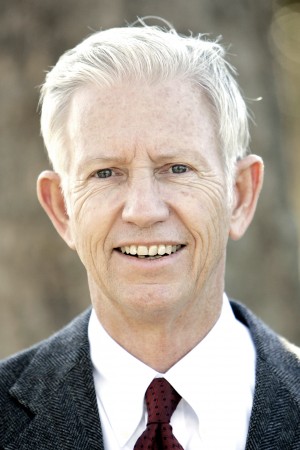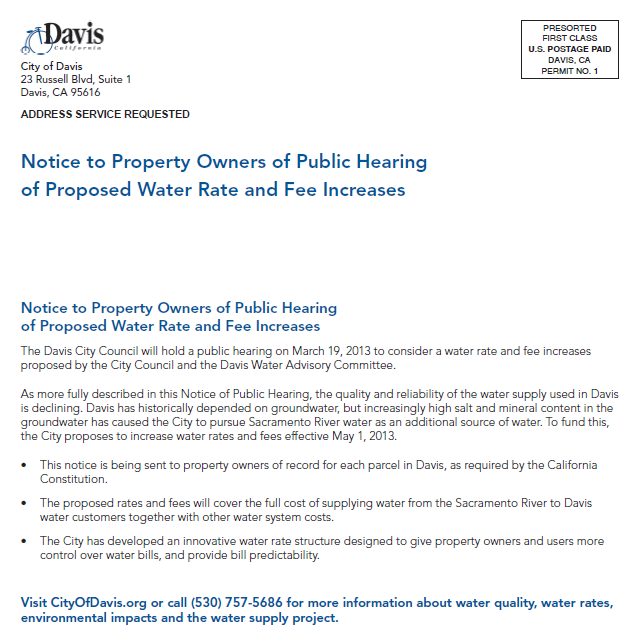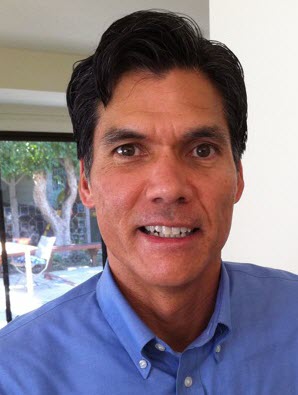Munn: Yolo County Taxpayers Association Was neither Consulted nor Notified About the Lawsuit
 On Tuesday evening, John Munn speaking at public comment at the Davis City Council meeting, refuted the involvement of the Yolo County Taxpayers in the suit against Measure I. Elaine Roberts Musser, chair of the Water Advisory Committee, would briefly respond to some of his comments.
On Tuesday evening, John Munn speaking at public comment at the Davis City Council meeting, refuted the involvement of the Yolo County Taxpayers in the suit against Measure I. Elaine Roberts Musser, chair of the Water Advisory Committee, would briefly respond to some of his comments.
The group calling itself Yolo Ratepayers for Affordable Public Utility Services filed a lawsuit last week, which asks the court to declare that the city’s existing rate structure violates Proposition 218.

 By Fraser Shilling
By Fraser Shilling






